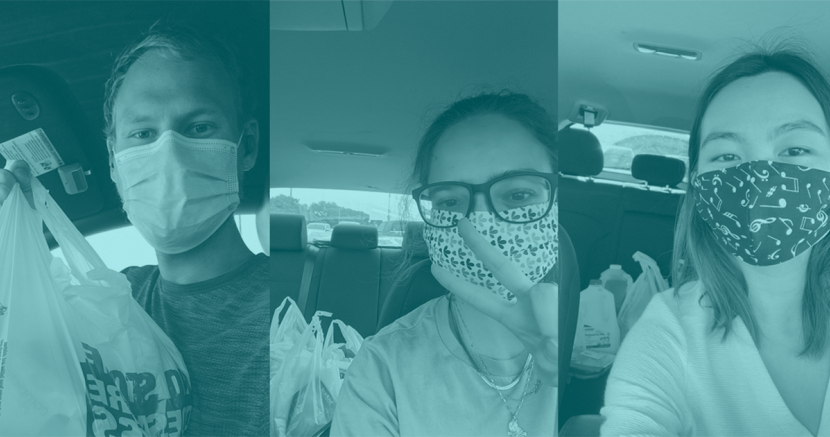Texas college students are taking care of their communities while navigating COVID-19

The current coronavirus pandemic is causing a lot of uncertainty for everyone, but college students are facing a unique predicament.
As the nation began to implement social distancing in response to COVID-19, universities all over Texas quickly followed suit by giving students notice to vacate campuses and worked swiftly to switch many of their courses and services to an online format.
With these abrupt changes came a lot of uncertainty for some college students. Students who relied on on-campus jobs for income now find themselves unable to work, those who relied on on-campus housing no longer have a place to stay or store their items, and many students are worried about how the transition from in-person to online classes will affect their overall academic performance.
In response, campus organizing efforts are already underway to bring up several concerns students are facing directly to campus leadership, such as partial tuition and fee reimbursements or changing grading policy to reflect the difficulty in transitioning to an online learning format.
Mutual aid networks
While waiting for their leadership to make decisions regarding these concerns, some students have already begun to take matters into their own hands by creating mutual aid networks to help support other students during these difficult times.
Mutual aid efforts have expanded widely amongst students across Texas universities to include things such as “Tip Jars,” where students can easily send money to students who now find themselves unemployed, or spreadsheets in order to coordinate emergency housing, transportation or storage needs after universities abruptly asked students to leave with little time to plan.
At Texas A&M University, students have been making grocery deliveries to others who find themselves in need, and at the University of Texas at Austin, students have raised over $3,500 in order to redistribute the funds directly into the hands of students and community organizations.
“You can’t depend on the state or system, so you form structures of community aid to do the things they aren’t doing for you,” said Sarah Philips, a student organizer at UT. “People wanting to provide for each other is really important, and the amazing thing is people can really start mutual aid groups for anything that's needed in their communities.”
Students being left behind
There are still gaps for many Texas students, though.
On top of the growing number of concerns college students are currently facing, there's the concern of not receiving a stimulus check. Those older than 17 are considered too old to receive the additional $500 child payment and the rules for dependents apply for college students under age 24, so if their parents still provide half or more of their financial support, then they'll also get locked out of the $1,200 payment.
For Sabrina Perez from the University of Houston, that’s exactly what’s happening.
“My parents still claim me so I’m not getting the stimulus check,” they said. “But since I don’t know if I’m getting tuition forgiveness from my university for what I still owe, and I’m currently unemployed, there’s a chance that me not being able to pay will prevent me from being able to take classes in the fall.”
With a rising number of unemployment rates, students are finding it even more difficult to continue funding school-related costs such as tuition, let alone other needs like housing and food, so a stimulus check provision for this age demographic is clearly necessary.
With unemployment rates skyrocketing to an all-time high, life after graduation also remains unstable for upcoming college grads.
“On top of grieving all the things I was supposed to experience as a senior in college, there’s also just so much uncertainty and pressure placed on young people to know what they’re going to do right after college, and this pandemic changes everything,” said Morgan Gimblet, a student at Texas A&M.
Some students are already finding opportunities they were planning on using to advance their career prospects, like summer internships or jobs, being canceled prematurely, leaving them unsure of what comes next for them.
On top of all of the fear and uncertainty the pandemic brings, and all of their organizing efforts, these students are still expected to continue along with their courses in hopes they can do the best they can considering the circumstances and can only hope it won't negatively affect their academic performance.
The solution?
Texas students’ resilience is tangible, but federal and state assistance is needed to ensure that young Texans aren’t left behind during the global pandemic. Until then, mutual aid networks will continue to be crucial in the fight for safety and security.
_____
Victoria Guerrero is a student activist attending the University of Texas Rio Grande Valley. She is a student organizer with the organization Advocates for Youth and works as a Deputy Field Organizer for Texas Rising. Her work centers on reproductive justice and its intersection with immigration and environmental justice.
DONATE
Your donation supports our media and helps us keep it free of ads and paywalls.








